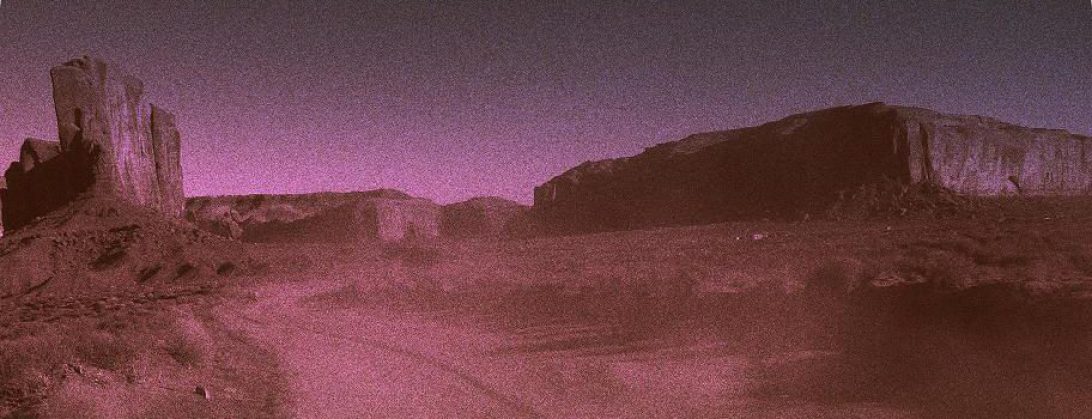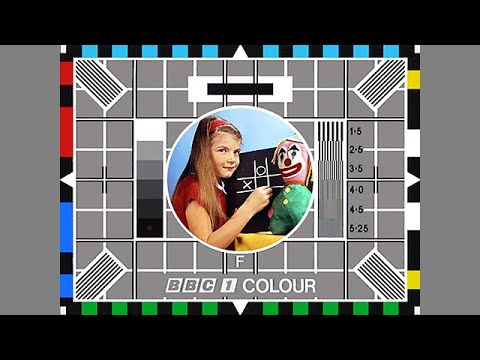“RICKAYYYYYYYYYY!!!!”
Harold & Madge
“You are the weakest link, goodbye!”
Beek-her Grerrrv – ha-ha, ha-ha, ha-ha.
“Here’s our Graham with a quick reminder”
If, as reading the above, you either heard or visualised them within, then the chances are that you are a similar age or above to me and would have seen them on the television at some point. I feel confident that most people can identify all five and I feel that way because for many years the majority of us were all watching the same things, and I miss that.
During the 1990s there were several things I would religiously watch: Grange Hill / Byker Grove at 5:10pm, Neighbours at 5:35pm, The Simpsons at 6pm, Eastenders at 7:30pm (or 8pm on a Monday!) as well as all of the Saturday evening classics: Noel’s House Party (gutted I never received an invite), Blind Date, Casualty, Gladiators, and all the rest. Does this sound familiar to you? Chances are it does. Just the other week, among a small group of friends, we randomly established that half of us were still haunted by an episode of Michael Buerk’s 999 where the lady got her long hair stuck in a jacuzzi filter and almost drowned. It was probably only broadcast once or twice, in the mid-90s, yet several of us remembered it well. We think about it every time we affix our hairbands in the swimming pool changing rooms, yet I can’t tell you anything about what I watched last year.
Nowadays, even though my television gets turned on almost every evening in the hope of being mind-blown, there is nothing I regularly watch, and if I do get really stuck into something, chances are I’ll only chat to one or two others who watch it too.
It’s easy to understand why this is. In the halcyon days described above, there were far fewer channels, no such thing as Freeview, and only a fortunate minority of the population owned a satellite dish. The internet was still several years off being something the majority had access to, and barely anybody owned a mobile phone on which they could while away time sending yellow faces to friends. When the weather was a bit rubbish (and remember, this is England) there was only a choice of about four things to do of a typical evening, and they each had their own button on the remote.
There were no such things as spoilers, no world wide web to give away the plot, and you either watched a programme at the same time as everybody else or you didn’t watch it at all (okay, strictly speaking you could watch it back on a recordable VHS, but the success of that was always at the mercy of whoever was in charge of setting it up). Our interest in soaps, sitcoms and dramas was always about the characters, and not the cast’s messy personal lives. Those two things never intertwined, like the media manages to make them do today.
Whilst these days watching television would not be something I endorse people doing too much of, I do – in some ways – miss how it used to be. That’s not because I believe the standard of programming has decreased in quality, but that the way in which we watch it has.
As of December 2018, there were around 460 available television channels in the UK. Of course, not everybody will have access to all of these, but on Freeview alone there are at least 70, and that’s not inclusive of the fact that you can essentially watch any programme hosted by the main channels at any time if you have access to their free streaming hubs.
This magnitude of choice may have sounded very appealing back in the 1990’s – when the likes of the Antiques Roadshow being on would decrease the likelihood of an evening being fun by twenty five percent – but in my experience, it’s turned out to be anything but. In fact, it’s probably one of the key reasons why I don’t tend to watch much anymore.
Earlier this week, I returned from an evening walk feeling shattered and cold and in need of a nice Winter evening on the sofa. I liked the idea of being ensconced in a bit of escapism in the same way I was in the past, and after making myself that little bit more comfortable, took a look through the numerous channels to find something that I could get stuck into for an hour or so. Snacks were prepared for this event.
But it just didn’t happen.
By the time I’d found something I felt compelled to watch for longer than ten minutes, the snacks had long gone, but it wasn’t because there wasn’t enough on the listings to interest me – just the opposite – and I found it hard to settle on one. If I wasn’t fully absorbed by a programme within the first five minutes, my mind wandered to the other listings I’d seen and I’d change the channel and start watching something else. This wasn’t an isolated incident either; flitting between various channels and applications is often the rhythm of my television viewing, and maybe that’s why – in my mind – there isn’t a modern day equivalent of ’90’s soaps and game shows, even though some of those same ones still run.
But this post isn’t meant to sound as though I’m trying to make a first world problem of not finding anything mesmerising enough to watch on the telly. It’s about the identification that sometimes, you can have too much of a good thing. More options to choose from – whether they’re television channels, music streaming apps, careers, profiles on online dating sites, travel destinations or varieties or McFlurry – are undoubtedly a product of the modern age for which we can only be thankful and I would not wish for this post to undermine my gratitude for that. But are they really making us happier, or have they diluted the joy we once took from these things when they were that little bit more rare: classmates bonding over their opinions of Who Shot Phil Mitchell because we’d all watched it (Google now tells you within an instant, it was gravel-voiced Lisa, IF you’d forgotten); Growing to love Track 9 on the New Kids cassette because there’s no quick option to skip and only three other cassettes to listen to; that place you kept going back to on holiday every year because you loved it so much; that one conversation you had time for on MSN Messenger because you couldn’t access the internet for more than fifteen minutes a day. It seems to me that we used to appreciate these things so much more.
My recent fiddle with the remote is just the latest manifestation of something that I have realised numerous times. It’s not always what you want, or even what you have, that makes you happy. It’s just as much about what you do and how it makes you feel. The programme can only be good if you’re watching it. You may never realise how much you love a song if you always skip it after the intro. Distance from home is unlikely to be the reason your favourite holiday was your favourite holiday, and just how memorable can a conversation be if you are having three others at the same time? Spreading things too thin is only a good idea if the jam is toxic. You’re less likely to die after one bite. But if it’s a really tasty, non-toxic jam, you’ll enjoy that bite so much more if you’ve more of it on the bread, even if it means eating a smaller piece.
One of my favourite things about the television is that I learn a lot from it; I didn’t always realise how much.
Something else many will recognise: The BBC testcard was in use from 1967 and 1998 and its predominant function was to freak the bejeezus out of anyone who turned the television on too early in the morning. And some other technical function apparently.
Video of the Day: The Simpsons – Your Putter’s Name is Charlene
What more fitting for this post than to break from tradition by including a video as opposed to a song, and this particular one is an example of how the internet can ruin classic tv. For years I’ve laughed at the scene when Homer vehemently suggests that Bart call his putter “Charlene”. It just seemed so random, why Charlene? Is the putter reminiscent of Kylie Minogue’s character in Neighbours circa 1989 or something? Would the wedge be called Scott and the green itself, Madge? I would chuckle internally at my own poor joke whenever I saw this clip. But I recently found out that it’s actually just a copy of a line from a war film. So it’s nothing at all to do with Neighbours, and there’s a logic to it afterall. Damn.
But still. A classic scene.

